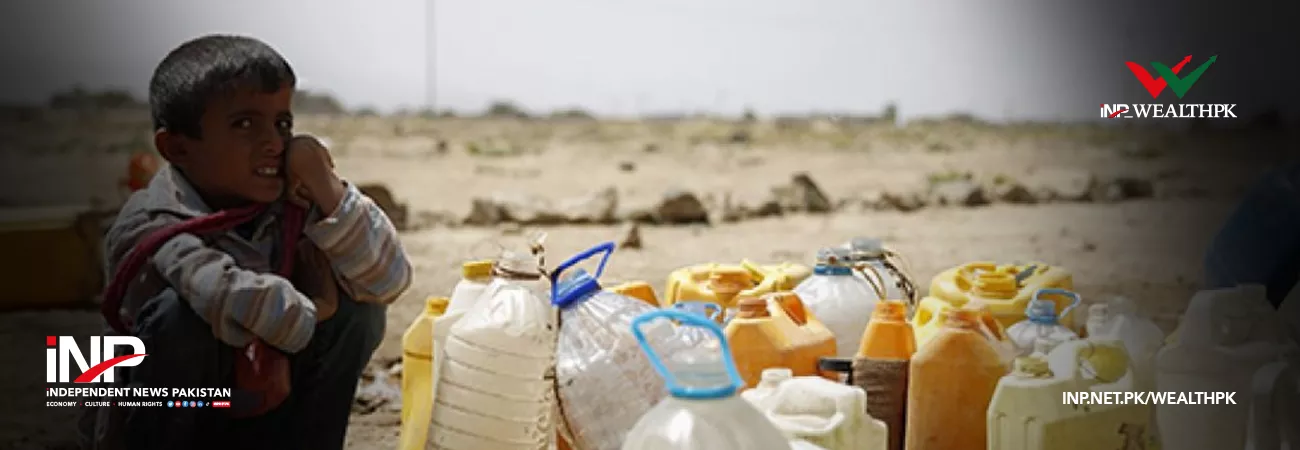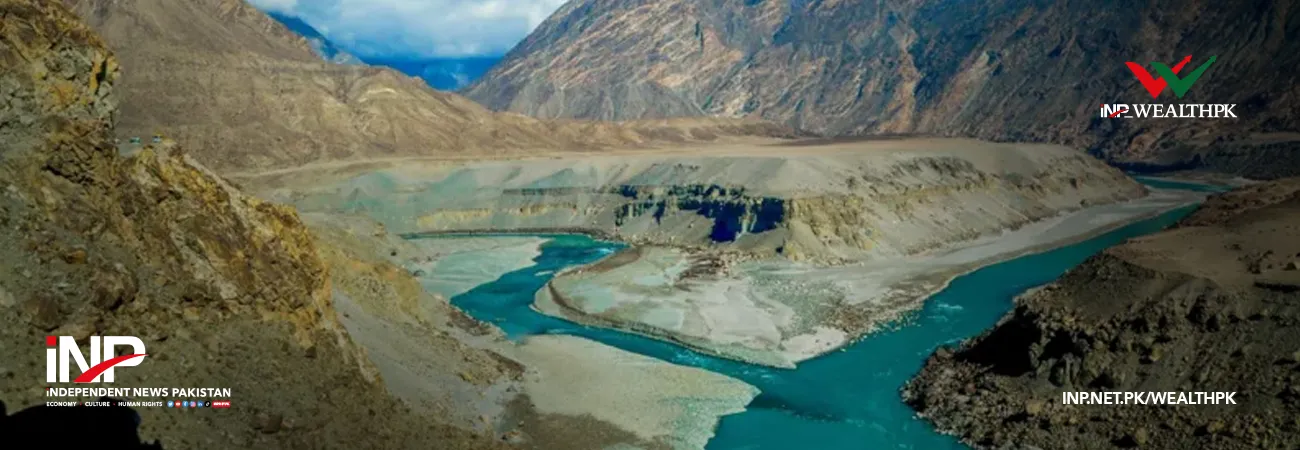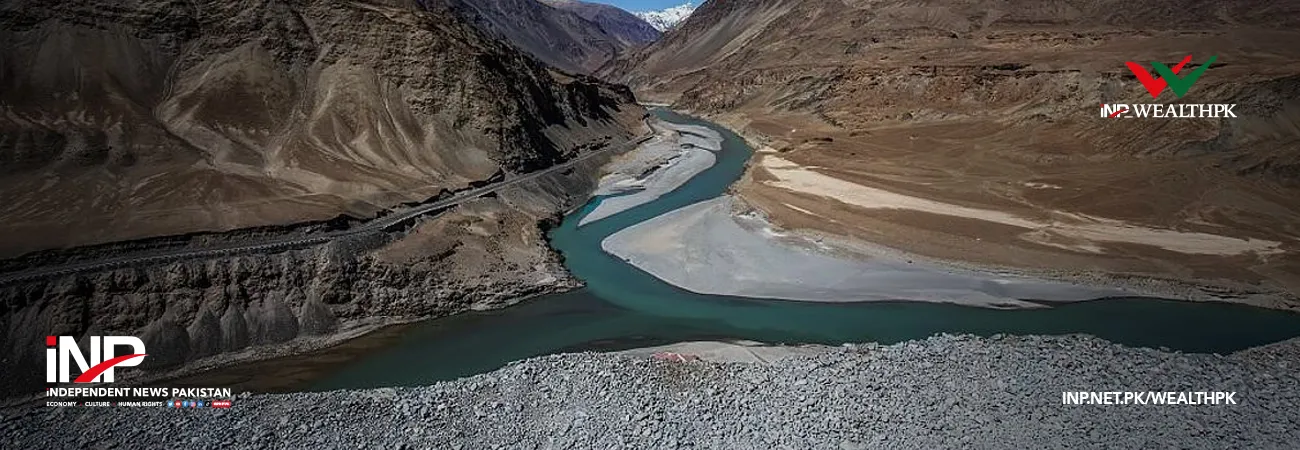INP-WealthPk
Uzair bin Farid
World Water Development report, which has been launched by the United Nations ahead of the UN 2023 Water Conference, calls for all the stakeholders’ collaboration to make sure that water shortages are addressed efficiently in a timely manner. The report has valuable lessons for policymakers, members of academia, industrialists, students, and members of civil society in Pakistan to help understand the severity of the water shortage problem in the country and try to address it.
Pakistan is fast becoming a water-stressed country, having great implications for its economy and population. According to the Pakistan Council of Research in Water Resources (PCRWR), Pakistan is among the top 10 countries that are facing a water crisis, and the situation is getting worse by the day.
One of the primary causes of the water crisis in Pakistan is the country’s rapidly growing population. According to the United Nations, Pakistan’s population is expected to reach 403 million by 2050, making it the world’s fourth most populous country.Moreover, the country’s agricultural practices are also a contributing factor to the water shortage. Agriculture accounts for about 90% of Pakistan’s water usage, and most of it is used inefficiently.
Farmers still use traditional irrigation methods such as flooding, which wastes a lot of water. Also, the use of outdated irrigation systems, coupled with poor water management practices, leads to water losses during transportation and distribution. The agriculture sector, which employs a significant portion of the population and is also the major contributor to the country’s GDP, is also the hardest hit by the growing water shortages.
Water shortages have led to reduced crop yields, food shortages and increased food prices. Additionally, it has led to unemployment in the agricultural sector, which has a ripple effect on the rest of the economy.Pakistan needs to adopt modern irrigation systems such as drip irrigation, which uses water efficiently and effectively, to save water. Farmers must be educated and trained on water management practices to prevent wastage.
As Pakistan receives a significant amount of rainfall, rainwater harvesting can be an effective way to increase water availability. The government can encourage the construction of rainwater harvesting systems in urban areas, schools and public places. Pakistan can also explore the option of setting up desalination plants to convert seawater into freshwater. Although it is an expensive technology, it can be a viable option for Pakistan, especially in coastal areas.
Similarly, Pakistan needs to promote water conservation. The government can introduce policies to encourage the use of water-efficient appliances and fixtures such as low-flow showerheads, faucets and toilets.The water crisis in Pakistan is a significant challenge that needs to be addressed urgently. The government, civil society organisations, and citizens must work together to curb the crisis. Pakistan needs to adopt sustainable water management practices, promote water conservation, and explore alternative water sources to ensure that its population has access to clean and adequate water.
Credit: Independent News Pakistan-WealthPk













